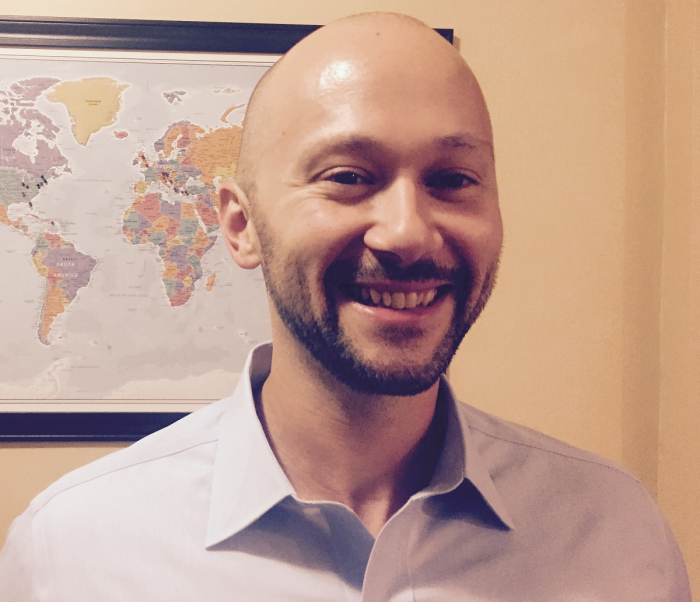Lifestyle Interventions for Traumatic Stress (LIFTS): Benefits of Physical Activity for PTSD and Related Conditions (With CE)
$50.00
Presenter: Dr. James W. Whitworth
Overview:
Posttraumatic stress disorder (PTSD) is a systemic disorder that causes immense psychological distress, negative impacts on psychosocial functioning, (American Psychiatric Association., 2013) and is linked to an increased risk for obesity, cardiovascular disease, metabolic disorders, and possibly premature mortality (O’Donnell et al., 2021; Wolf et al., 2016). There are effective evidence-based treatments for PTSD. However, these treatments often fail fully resolve symptoms, suffer from numerous treatment barriers, and do not to address the physical health consequences of PTSD, leaving trauma survivors with lasting functional impairments, and disability (Burback et al., 2024). Physical activity and exercise are essential lifestyle behaviors, having well established beneficial effects on the risk for cardiovascular disease, diabetes, and numerous other disorders (Ross et al., 2016). Moreover, years of exercise psychology research underscore the importance of physical activity in the treatment of several common mental disorders, such as depression and anxiety (Pearce et al., 2022; Ramos-Sanchez et al., 2021). Thus, the following presentation will discuss the potential role, rationale, and current evidence for the inclusion of exercise as a part of PTSD treatment.
Learning Objectives: Intended Audience: Intermediate
- Describe psychological trauma, posttraumatic stress disorder (PTSD), and comorbid conditions and behaviors.
a. What is trauma vs stress and grief?
b. PTSD symptom presentation
c. Basic PTSD stats, prevalence, at risk populations
2. Demonstrate knowledge of relations among physical inactivity, exercise, and PTSD
a. The international guidelines for physical activity
b. Chronic and acute effects of exercise on PTSD and related outcomes
c. Impact of PTSD on physical activity
d. Potential psychological and physiological mechanisms
Presenter Bio:
James is an OIF/OEF veteran and former warfighter. Currently, he is a VA funded principal investigator with the Behavioral Science Division of the National Center for PTSD at VA Boston Healthcare System and Assistant Professor at Boston University School of Medicine. James is the President-elect of the New England Chapter of the American College of Sports Medicine (ACSM). His program of study focuses on examining the effects of exercise on posttraumatic stress disorder and comorbid conditions. He is committed to conducting research that addresses the physical and mental health needs of Veterans and trauma survivors with posttraumatic stress disorder.
CE Credits Available: 1.0
Attendees must attend the entirety of the program and complete the Evaluation sent after the program. Evaluations will be sent via email shortly after the Live webinar. CE Certificates will be processed and emailed within 5 – 10 business days from Live Webinar.
PLEASE NOTE: You must sign in to receive the Member discount. After purchasing, you must follow the link in your receipt provided to REGISTER for the webinar via Zoom. It is a 2-step process. If a link does not appear, contact us.
Cancellation Policy: No refunds will be provided except when SCP cancels the webinar.
The Society of Clinical Psychology, Division 12 nor Dr. Whitworth have commercial support for the content of this webinar including endorsement of products, conflict of interest including but not limited to research grants, royalties for books or training, commercial support from companies or pharmaceutical sponsorship.
If you require any special needs assistance, please contact the SCP Central Office at [email protected].
Description
Presenter: Dr. James W. Whitworth
Overview:
Posttraumatic stress disorder (PTSD) is a systemic disorder that causes immense psychological distress, negative impacts on psychosocial functioning, (American Psychiatric Association., 2013) and is linked to an increased risk for obesity, cardiovascular disease, metabolic disorders, and possibly premature mortality (O’Donnell et al., 2021; Wolf et al., 2016). There are effective evidence-based treatments for PTSD. However, these treatments often fail fully resolve symptoms, suffer from numerous treatment barriers, and do not to address the physical health consequences of PTSD, leaving trauma survivors with lasting functional impairments, and disability (Burback et al., 2024). Physical activity and exercise are essential lifestyle behaviors, having well established beneficial effects on the risk for cardiovascular disease, diabetes, and numerous other disorders (Ross et al., 2016). Moreover, years of exercise psychology research underscore the importance of physical activity in the treatment of several common mental disorders, such as depression and anxiety (Pearce et al., 2022; Ramos-Sanchez et al., 2021). Thus, the following presentation will discuss the potential role, rationale, and current evidence for the inclusion of exercise as a part of PTSD treatment.
Learning Objectives: Intended Audience: Intermediate
- Describe psychological trauma, posttraumatic stress disorder (PTSD), and comorbid conditions and behaviors.
a. What is trauma vs stress and grief?
b. PTSD symptom presentation
c. Basic PTSD stats, prevalence, at risk populations
2. Demonstrate knowledge of relations among physical inactivity, exercise, and PTSD
a. The international guidelines for physical activity
b. Chronic and acute effects of exercise on PTSD and related outcomes
c. Impact of PTSD on physical activity
d. Potential psychological and physiological mechanisms
Presenter Bio:
James is an OIF/OEF veteran and former warfighter. Currently, he is a VA funded principal investigator with the Behavioral Science Division of the National Center for PTSD at VA Boston Healthcare System and Assistant Professor at Boston University School of Medicine. James is the President-elect of the New England Chapter of the American College of Sports Medicine (ACSM). His program of study focuses on examining the effects of exercise on posttraumatic stress disorder and comorbid conditions. He is committed to conducting research that addresses the physical and mental health needs of Veterans and trauma survivors with posttraumatic stress disorder.
CE Credits Available: 1.0
Attendees must attend the entirety of the program and complete the Evaluation sent after the program. Evaluations will be sent via email shortly after the Live webinar. CE Certificates will be processed and emailed within 5 – 10 business days from Live Webinar.
PLEASE NOTE: You must sign in to receive the Member discount. After purchasing, you must follow the link in your receipt provided to REGISTER for the webinar via Zoom. It is a 2-step process. If a link does not appear, contact us.
Cancellation Policy: No refunds will be provided except when SCP cancels the webinar.
The Society of Clinical Psychology, Division 12 nor Dr. Whitworth have commercial support for the content of this webinar including endorsement of products, conflict of interest including but not limited to research grants, royalties for books or training, commercial support from companies or pharmaceutical sponsorship.
If you require any special needs assistance, please contact the SCP Central Office at [email protected].






Reviews
There are no reviews yet.